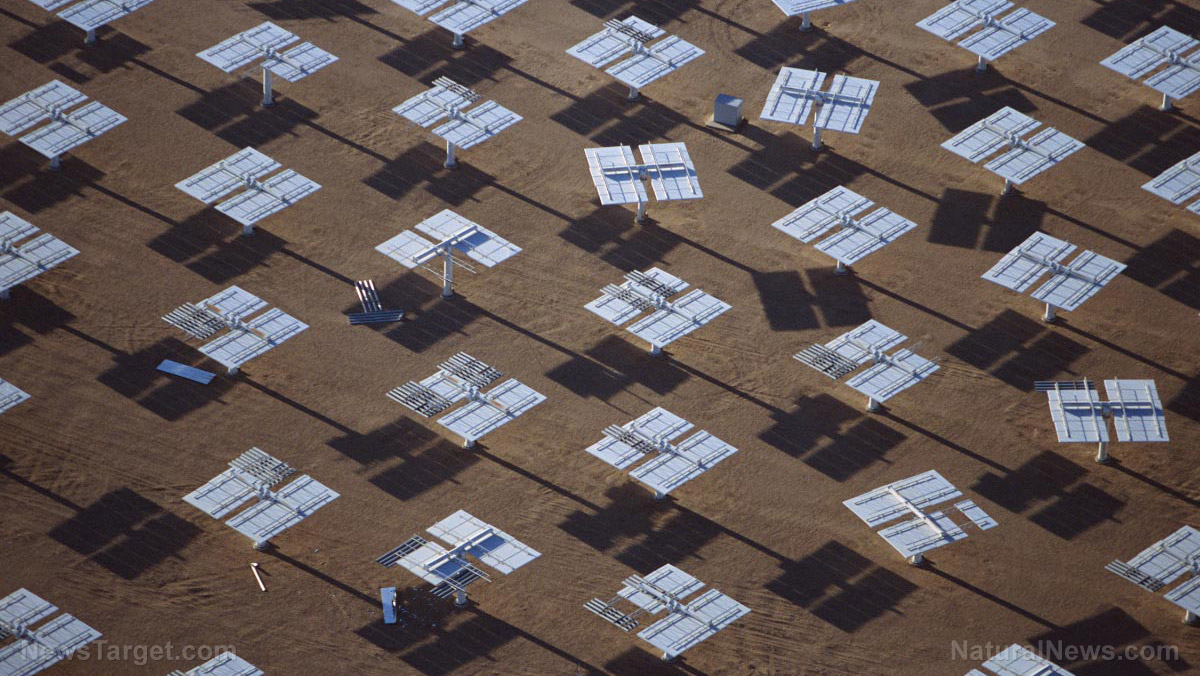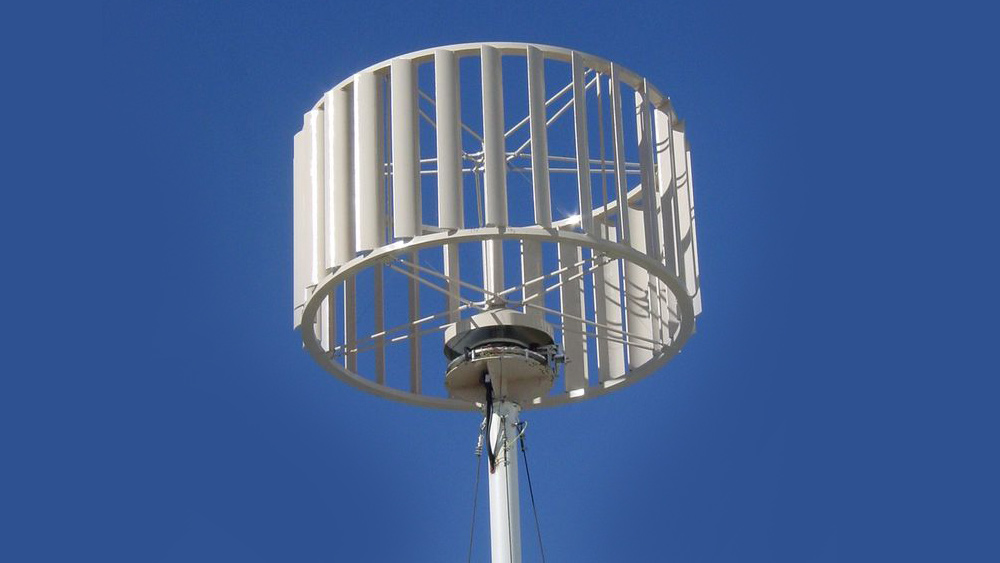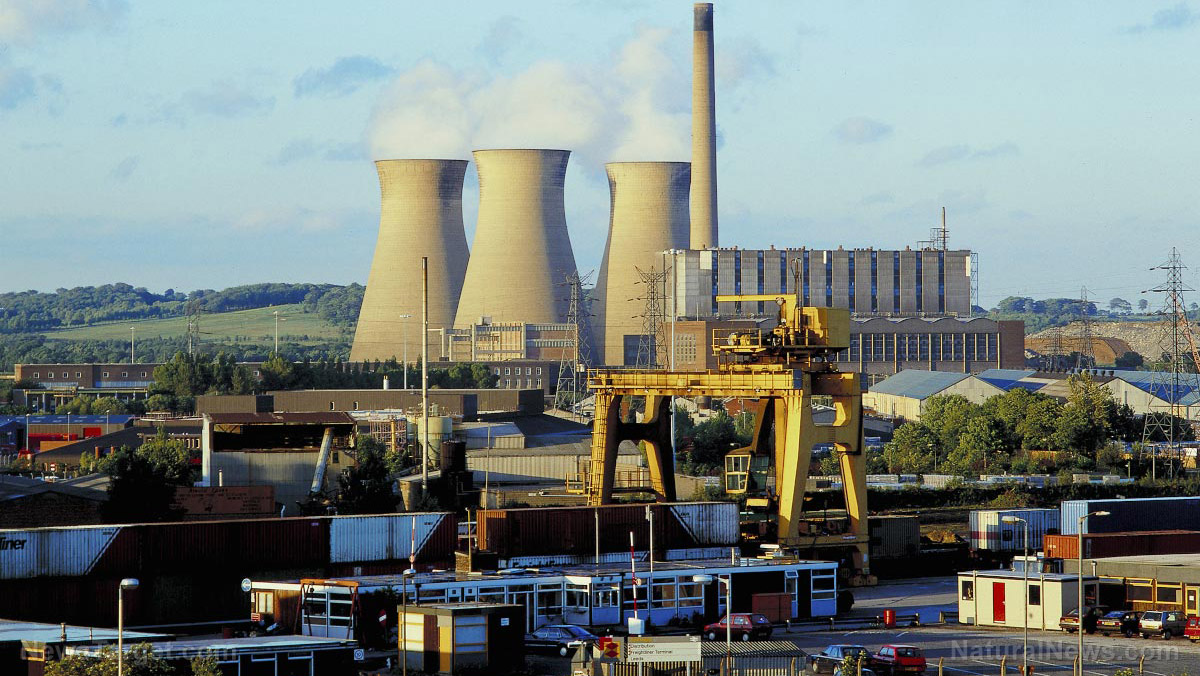Solar panels much more wasteful and toxic than widely believed, warns environmental policy expert
07/09/2021 / By Arsenio Toledo

Environmental experts are warning that solar panels are producing much more toxic waste than renewable energy advocates are leading people to believe.
Michael Shellenberger, an expert on environmental policy, recently went on NTD to talk about how the process of producing, deploying and recycling solar panels shows that the technology is very toxic and dangerous. He further warned that the continued advocacy of solar energy is being driven more by ideology rather than science. (Related: Solar power is neither as clean nor as sustainable as environmentalists make it out to be.)
“We’ve been in a sort of hypnotic trance,” said Shellenberger during his interview. He was referring to what he characterized as the belief of solar power activists that solar is very environmentally friendly and is a cleaner alternative to traditional forms of power generation.
“It’s a spiritual pursuit,” he continued. “There’s the idea that … we’ll protect the natural environment by being dependent on natural energy flows like sunlight. It’s not a scientific view. It actually is worse for the environment.”
High cost of recycling solar panels leads to them being dumped into landfills instead
Shellenberger’s beliefs are backed up by a recent study conducted by the Harvard Business Review. This study found that solar panels are being replaced at a rate faster than expected due to a variety of economic incentives. These incentives are encouraging people using solar panels for their homes to trade out their existing panels for newer, cheaper and more efficient panels.

“In an industry where circularity solutions such as recycling remain woefully inadequate, the sheer volume of discarded panels will soon pose a risk of existentially damaging proportions,” wrote the study authors.
The study showed that, as the solar industry boomed, it focused largely on the production and deployment of new solar panels. This resulted in solar advocates neglecting to build up infrastructure for recycling solar panels.
According to First Solar, a panel manufacturer in the United States with its own recycling initiative, it costs an estimated $20 to $30 to recycle one panel. In contrast, it would only cost solar companies $1 to $2 to send that same panel to a landfill.
By 2035, Harvard Business Review predicted that discarded solar panels would outweigh units sold by over two times. The responsibility of cleaning up the discarded solar panels would then fall on local, state and finally federal regulators.
“The economics of solar – so bright-seeming from the vantage point of 2021 – would darken quickly as the industry sinks under the weight of its own trash,” wrote the magazine.
Discarded solar panels can release toxic waste
When asked about the Harvard Business Review’s study, Shellenberger said the high recycling costs are just one factor that makes investing in solar energy far too harmful. The solar panels contain many heavy metals and other toxic elements. When these solar panels are left to the elements in dumps and landfills, these toxic materials can spread into the soil and the air.
Solar panels contain over half a dozen materials that are dangerous to human health, including cadmium and copper compounds and lead. This won’t affect users of solar panels, but it will affect recyclers and the environment. The Foundation for Economic Education estimated that by 2016, photovoltaic technology had spread about 11,000 tons of lead and 800 tons of cadmium all over the world.
Shellenberger pointed out that aerosolized lead has been carefully regulated to prevent people from being exposed to it because it can cause brain damage. “It’s as dangerous as lead paint, it’s as dangerous as all of the lead-based materials that society has basically phased out until now,” he said.
Furthermore, Shellenberger noted that solar panels degrade faster than people previously thought at a rate of about one percent a year. This adds to the economic incentive people already have to replace their solar panels more frequently.
“Now we know that this consumer product that people thought was somehow clean, in harmony with nature, really is … actually quite toxic,” said Shellenberger.
Learn more about the consequences of investing heavily into solar energy by reading the latest articles at SolarPanels.news.
Sources include:
Tagged Under:





















